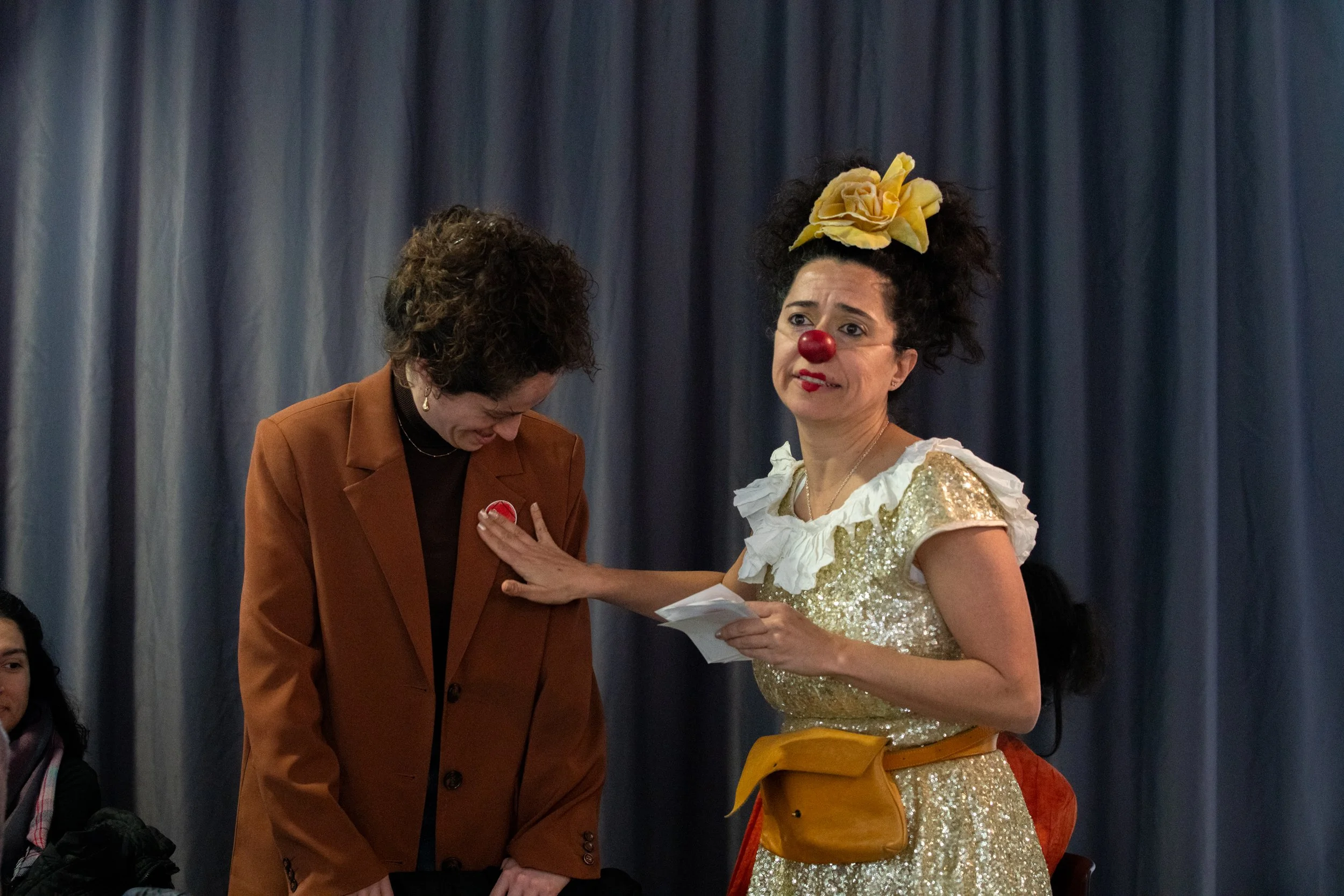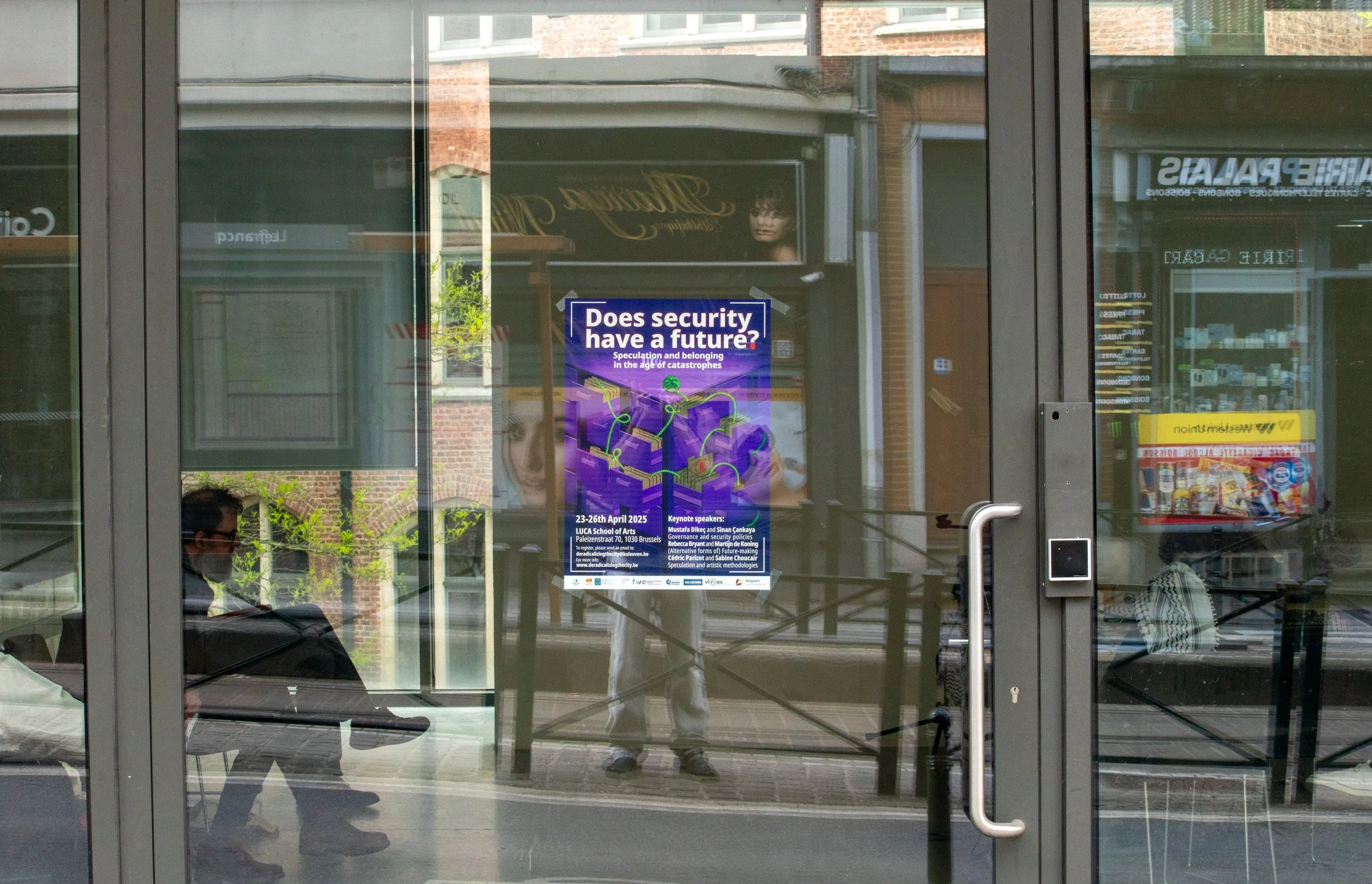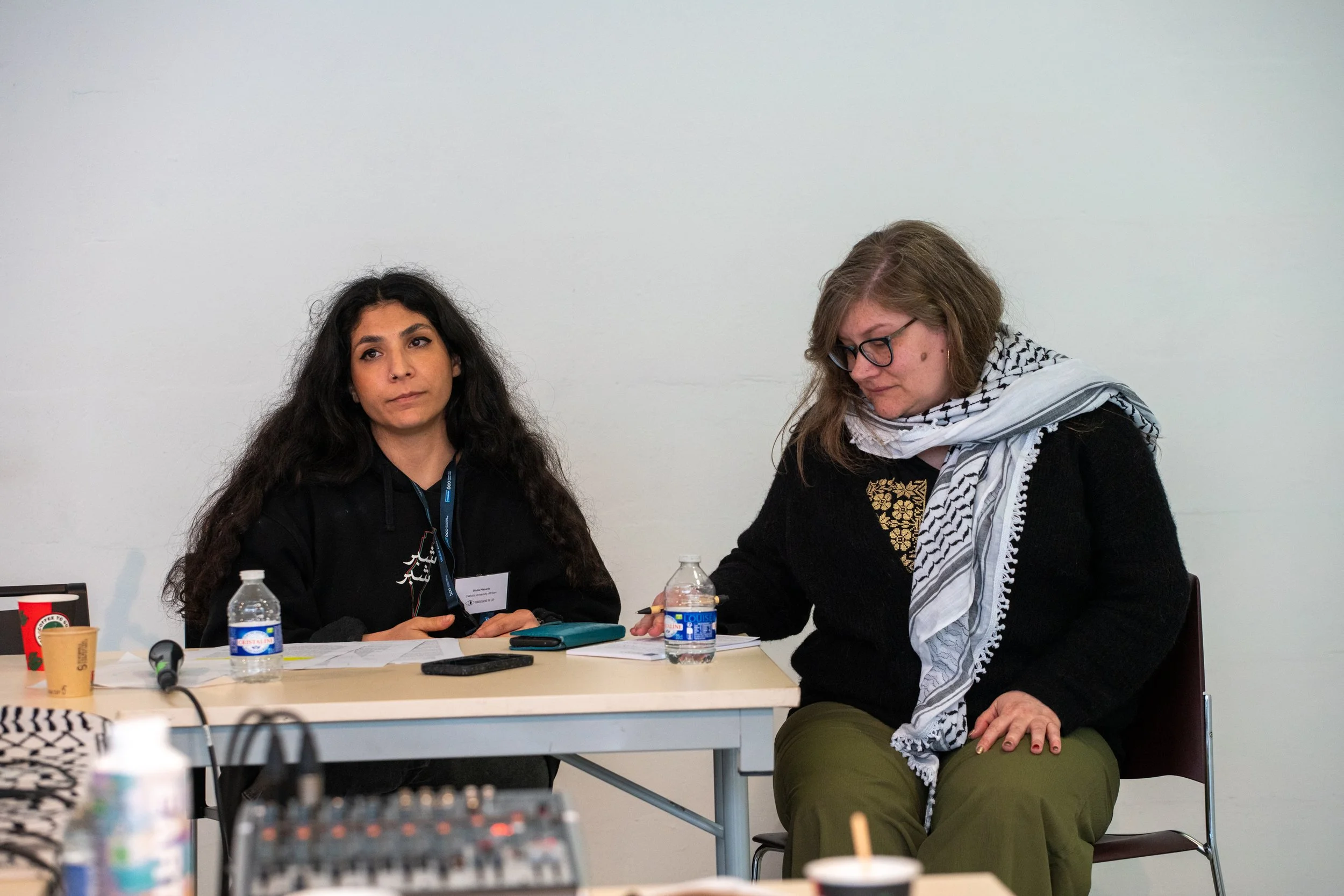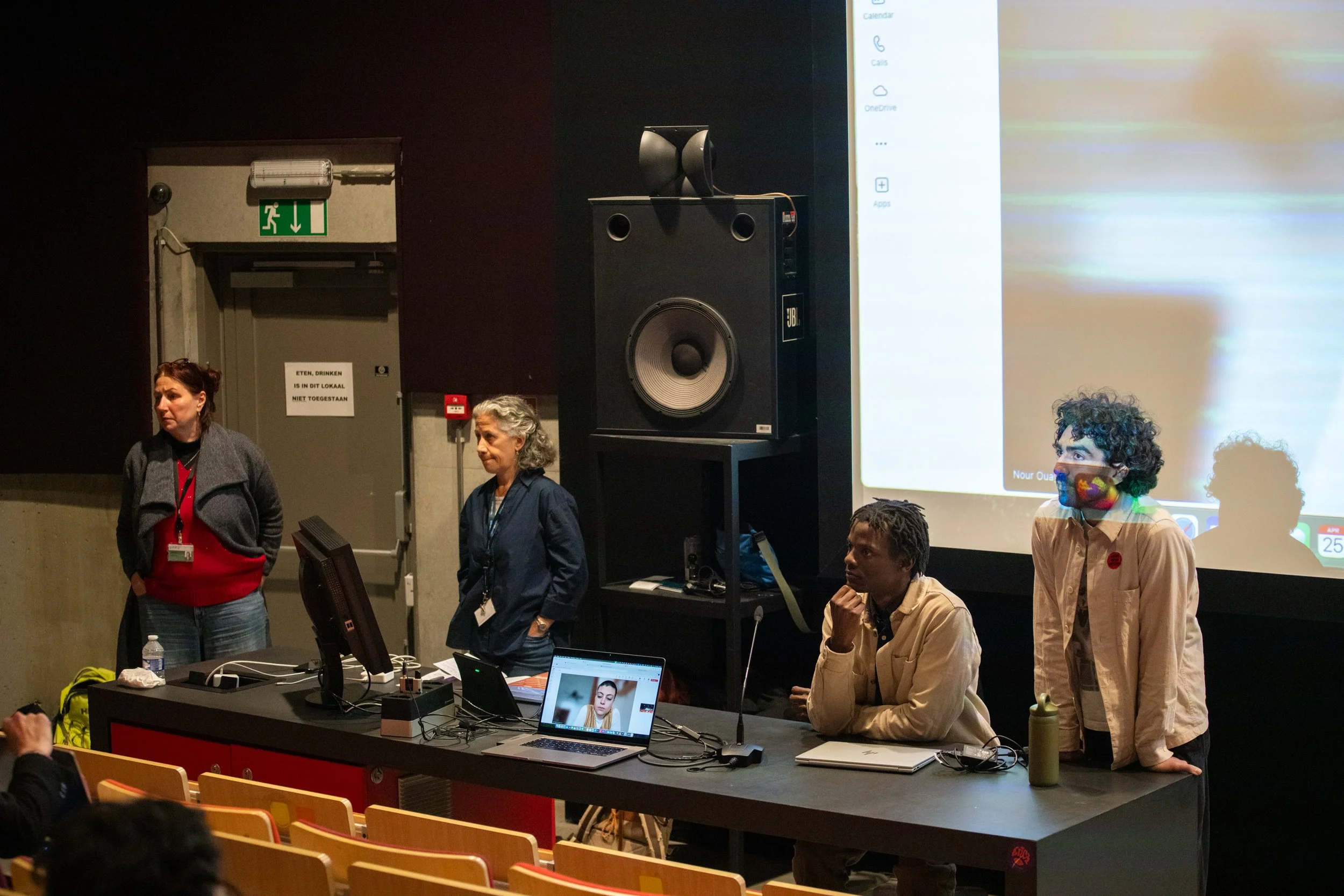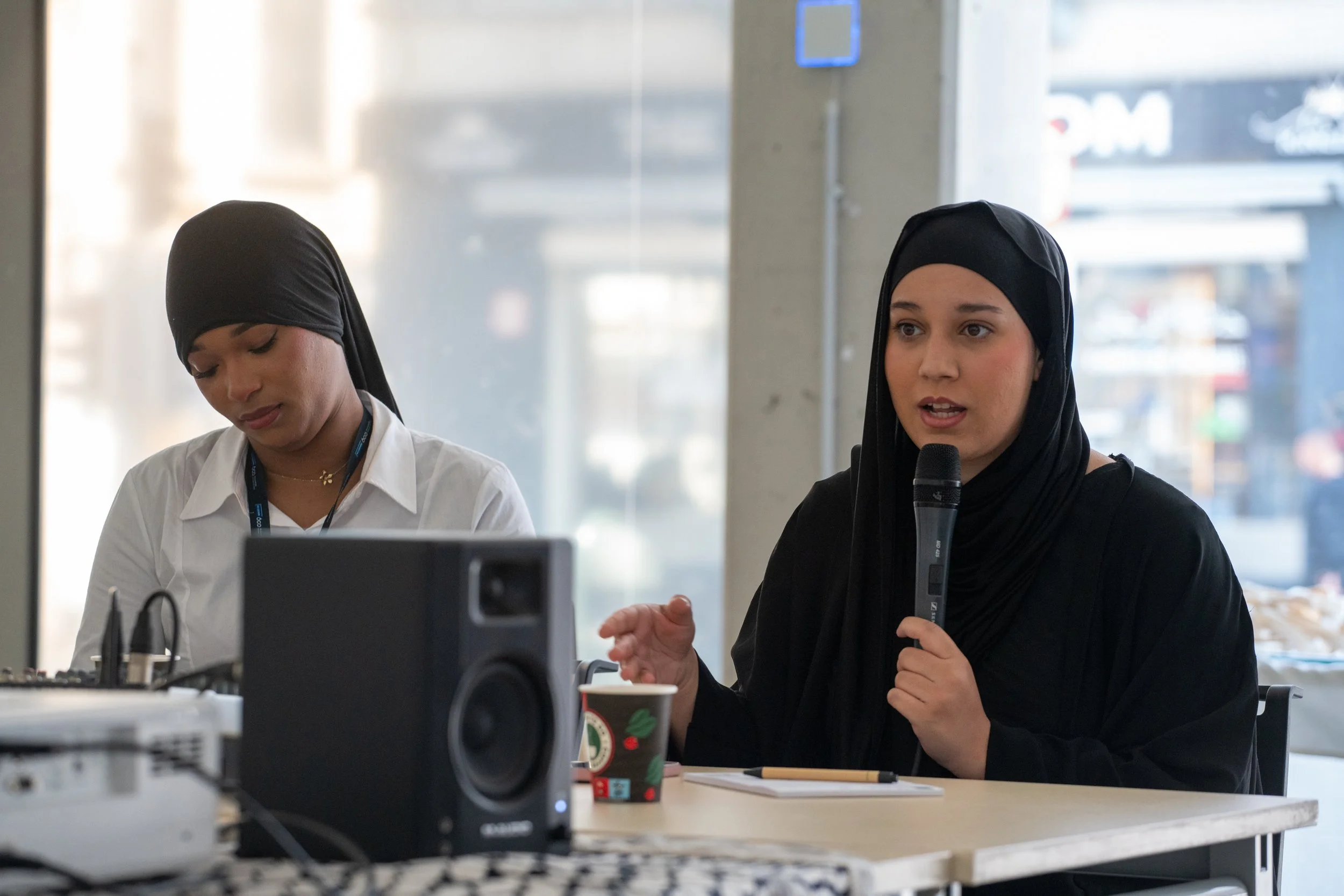Final Conference Report
The final conference of the research project Deradicalizing the City took place from April 23 to 26, 2025, at LUCA School of Arts in Brussels. The event marked both the conclusion of four years of collaborative research and an opening toward a more collective discussion, bringing together researchers, artists, and civil society actors to reflect on a central question : “Does security have a future ?”
Designed as a space of dialogue across disciplines, formats, and publics, the conference combined academic presentations, artistic performances, and visual and sound installations. Discussions unfolded across several spaces on campus : the amphitheatres, the terrarium, and the T3 Cube, creating an immersive trajectory between scientific knowledge and sensory experimentation.
The two keynote panels delved deeper into the links between security, governance, and space.
In the first, Martijn de Koning examined the temporal, spatial, and ontological dynamics of how “the future” is imagined within contemporary counter-radicalization discourses, and how alternative futures are simultaneously envisioned and foreclosed. He invited us to unlearn security thinking, and instead to turn toward forms of imagination, aspiration, and storytelling that remain open, speculative, and resistant to capture. Rebecca Bryant, drawing on her research in Cyprus and the United States, developed the notion of speculative governance, showing how real estate speculation becomes a political instrument for territorial control and social reconfiguration.
At the T3 Cube, Lore Janssens exhibited a series of photographs and poems exploring the gentrification of the canal and the Molenbeek district, as well as the impact of security measures targeting Muslim families in Bruxelles. Lamia Mellal and Farah Kassem presented, together with students from a high school in Marseille’s northern districts, a series of podcasts and short films co-produced through a participatory research-creation process. These works emerged from Lamia Mellal ethnographic research on the post-2015 securitization of schools in France.
A wool thread connected the different spaces, the T3 Cube, the Cineacapella mini-cinema, and the conference halls, symbolizing the project’s ambition to weave connections across scales (European, national, and local) and to reveal how “deradicalization policies” operate concretely in the lives of racialized minorities targeted by security and surveillance measures.
The first panel, moderated by Hamza Esmili, gathered the project’s four PhD researchers : Alex Govers López, Lore Janssens, Farah Kassem, and Lamia Mellal. Alex Govers López reflected on the position of the researcher when studying state institutions, showing how policy concepts such as the “prevention of violent extremism” circulate across different scales of governance. For him, the “field” was not immediately visible but had to be constructed through connections between actors and sites of power. Lore Janssens explored the intersections between urban life, security, and visual representation, using photography as a critical tool to analyze Brussels’ transformation through securitization. Farah Kassem presented her sound-based and performative methodology, grounded in spontaneous encounters and the acoustic atmospheres of the city. Finally, Lamia Mellal discussed how security policies in France contribute to the intensification of racialization in schools. She explained how her participatory co-creation process with students functions as a way to subvert securitarian constraints that often silence students’ experiences, turning art into a mode of indirect yet powerful speech.
The second keynote brought together Mustafa Dikeç and Sinan Çankaya. Dikeç analyzed urban policy as a spatial technology of normalization, which narrows the boundaries of legitimate politics and erodes plurality. Çankaya proposed a critical reading of the racial hierarchy of suffering, showing how institutional whiteness transforms colonial guilt into moral innocence, notably in relation to the European migration crisis and the genocide in Palestine.
In a methodological reflection on the use of art in security studies, Sabine Choucair offered a participatory performance that invited participants to rethink laughter and play as tools of resistance against fear and control. Following her, Cédric Parizot reflected on the forms of collaboration that can develop between researchers and artists. He explored how such exchanges foster new modes of communication and production that reach beyond academic circles, and questioned what these processes reveal about the very notion of authorship, whether in research, art, or research-creation.
These reflections introduced by the keynote speakers served as a starting point to open up the discussion with early-career researchers and artists working on these questions in their doctoral projects or professional practices, both in Europe and the Arab world.
The final day opened the discussion to community partners and young participants involved in the project’s research-creation activities. Students from Marseille presented their podcasts, reflecting on what the process had allowed them to experience, express, and share. Through themes such as racism, and school life, these sound pieces offered intimate and critical perspectives on security, discrimination, and imagined futures.
This closing moment embodied the participatory and reflexive spirit of Deradicalizing the City: to critically analyze security as a social and political construction that must be collectively questioned. It was a powerful experience to spend four days immersed in such reflections, encountering multiple ways of thinking about security and resistance. The conference itself became an experiment an attempt to create spaces of dialogue and imagination where research and art merge to expose mechanisms of control while envisioning other ways of living together, and other possible futures.



